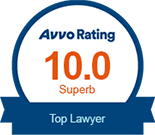
Michigan Industrial Hemp Lawyer
Although Michigan’s legalization of both medical and recreational marijuana has created an entirely new market for budding entrepreneurs, many have overlooked an even-more accessible and less-risky alternative: industrial hemp. Hemp presents a tremendous opportunity for entrepreneurs of all backgrounds, as long as they are familiar with state and federal regulations.
At Grewal Law PLLC, our cannabis law attorneys have been heavily involved in the marijuana and hemp industries for years and have extensive experience in ensuring compliance with state and federal laws that are often highly confusing. We have achieved success in helping our cannabis law clients not only obtain the required licensing but also to structure and establish their businesses properly from day one.
To speak with a Michigan industrial hemp attorney, call (888) 211-5798 or contact us online today.
The History of Industrial Hemp
Although the legalization of marijuana has gotten significant attention in recent years, less has been said about the legalization of industrial hemp. Hemp is one of America’s oldest crops, dating back to 1632 when the Virginia Assemble mandated that farmers include hemp as part of their crops. Until it was banned as part of the war on “drugs,” hemp was a vital agricultural product and played a major role in American society. Today, state and federal regulations have opened the door for hemp to make a comeback.
How Does Hemp Differ from Marijuana?
From a scientific standpoint, hemp is no different than marijuana, as both are derived from the cannabis plant. The difference between marijuana and hemp is a purely legal one: Industrial hemp is defined by state and federal law as a cannabis plant with a THC concentration of no more than 0.3%. In other words, hemp comes from the marijuana plant but has a very small concentration of the psychoactive ingredient in marijuana. As a result, hemp is not suitable for getting “high;” it is, however, extremely useful in industrial applications.
Hemp stalks, seeds, and seed oil can be used in any of the following products:
- Rope
- Canvas
- Clothes
- Biofuel
- Cardboard
- Fiberboard
- Insulation
- Plastic substitutes
- Automotive panels
- Concrete
- Paint
- Cosmetics
- Fuel
Hemp is also easier to grow, produces more fiber per acre, and is frequently heartier than products derived from other natural resources like cotton or trees. In short, the recent legalization of hemp presents an enormous opportunity for the development of products that are stronger, longer-lasting, and more ecologically sustainable than existing products based on other natural fibers or petrochemicals.
Why Hemp Licensing?
Although there is no question that marijuana businesses can be viable entrepreneurial opportunities, operating a hemp business does offer a number of advantages over a marijuana business. First, hemp is legal at both the state and federal levels. This allows hemp producers, depending on forthcoming regulations, to transport, sell, and market hemp in interstate commerce. Marijuana, on the other hand, is legal only in certain states, and transport across state lines is a violation of federal law.
Hemp licensing is also likely to be a faster, less expensive, and less burdensome process than marijuana licensing. While application fees for marijuana businesses are in the thousands, and licensing fees in the tens of thousands, the registration fee for a Grower license is $100.00 and the Processor-Handler license is $1,350.00.
Hemp Licensing Regulations for Cannabusinesses
Thanks to the enactment of the Michigan Regulation and Taxation of Marihuana Act (MRTMA) and the federal government’s passage of the 2018 Farm Bill, the re-emergence of hemp is not far off. Growing hemp lawfully, however, requires compliance with significant regulations at both the state and federal level.
In order to lawfully grow hemp, citizens must comply with either a state plan approved by the U.S. Secretary of Agriculture, or a substitute plan developed by the USDA. Michigan has already submitted its plan to the federal government, and the USDA has also proposed regulations. Neither plan is currently finalized, but final regulations could be established in time for the 2020 planting season.
Currently, Michigan has established two types of licenses related to industrial hemp:
- Grower
- Processor-Handler
A grower license is intended for those who intend to grow industrial hemp and sell that hemp to a processor-handler or marijuana facility (under certain circumstances). A processor-handler license permits individuals or businesses to process, market, and sell hemp obtained from a licensed grower.
To be eligible for a hemp grower license, an applicant must provide the Michigan Department of Agriculture with the following information:
- Identifying information for the applicant. If the applicant is a business entity, the application must also include certain identifying information for each person who holds at least 10% of the equity in the business entity;
- The proposed acreage or indoor square footage of the planting location;
- The street address, location ID, and GPS coordinates for each location where hemp will be grown, handled, or stored;
- Maps of each grow, handling, or storage location, with entrances and boundaries clearly marked with GPS locations; and
- A request that the grower is permitted to sell hemp to a licensed marijuana processor (if desired).
To be eligible for a hemp processor-handler license, an applicant must provide the Michigan Department of Agriculture with the following information:
- Identifying information for the applicant. If the applicant is a business entity, the application must also include certain identifying information for each person who holds at least 10% of the equity in the business entity;
- The street address, location ID, and GPS coordinates for each location where hemp will be processed, handled, stored, or brokered;
- Maps of each location where hemp will be processed, handled, stored, or brokered, with entrances and boundaries clearly marked with GPS locations; and
- A request that the grower is permitted to sell hemp to a licensed marijuana processor (if desired).
Licenses are valid for one year and expire at midnight each November 30th. To be eligible for either license, an applicant must be 18 years old.
In addition, a license will be denied if any of the following apply:
- The applicants grow or processing sites are outside of Michigan;
- The applicant has demonstrated an unwillingness to comply with MDARD’s rules or law enforcement;
- The applicant owes fees, fines, or civil penalties to the state in connection with the applicant’s hemp activities;
- The applicant made false statements to MDARD or law enforcement;
- The applicant’s grower or processor-handler license has been revoked in the last 5 years.

Our Settlements & Verdicts
-
$2.4 Million Medical Malpractice
A 52-year-old man was admitted to hospital with chest pains. Thereafter, he was sent home without proper treatment and died within hours of a massive heart attack.
-
$2.3 Million Birth Injury
Failure to properly deliver a newborn baby resulting in the child developing Cerebral Palsy & lifelong disability.
-
$2 Million Truck Accident
Motor vehicle collision resulting in the death of a 56-year-old man following a head-on collision with a semi-truck.
-
$1.7 Million Medical Malpractice
Spinal hematoma following an epidural injection in a 75-year-old resulting in neurologic damage.
-
$1.5 Million Wrongful Death
A 69-year-old man died after being involved in a one-car collision caused by a defective road design of a state highway.


Client Testimonials
-
"Thank you so much for all of your dedication and assistance!"Grewal Law has been amazingly empathetic and forward-thinking through this very emotional and trying time.- Anonymous
-
"The service from this company is fantastic. It is a team that will represent you well."Grewal Law offers a service to its clients, that is professional and the entire staff makes a personal effort to help each individual.- M.L.O
Special Concerns About CBD
It is important to remember that even a properly licensed industrial hemp processor is limited in the marketing claims they can make with respect to hemp-derived products. The marketing of hemp or CBD as dietary supplements, food additives, or for therapeutic effect falls within the jurisdiction of the Food and Drug Administration (FDA), which has taken an aggressive approach to regulating hemp, CBD in particular. Our team can help you to navigate the FDA’s rules to help avoid a potentially costly enforcement action for improper marketing.
These rules are only the tip of the iceberg, and compliance with applicable regulations is essential for those wishing to operate hemp businesses in Michigan. At Grewal Law PLLC, our team of hemp attorneys is ready to assist you to ensure that you are operating lawfully.
Call (888) 211-5798 to contact our firm and speak with a qualified attorney about industrial hemp!


Meet Our Team
A Relentless Firm That Doesn't Take No For An Answer
-
 Manvir (Mick) S. Grewal Sr. Founder and Managing Partner
Manvir (Mick) S. Grewal Sr. Founder and Managing Partner -
 Scott Weidenfeller Attorney; Medical Malpractice & Personal Injury Team Leader
Scott Weidenfeller Attorney; Medical Malpractice & Personal Injury Team Leader -
 Ayanna D. Neal Attorney; Sexual Assault & Civil Rights Team Leader
Ayanna D. Neal Attorney; Sexual Assault & Civil Rights Team Leader -
 Nolan L. Erickson Attorney; New Client Intake Coordinator & Mass Torts Projects
Nolan L. Erickson Attorney; New Client Intake Coordinator & Mass Torts Projects -
 Rico D. Neal Attorney; Criminal Team Leader
Rico D. Neal Attorney; Criminal Team Leader -
 David S. Mittleman Litigating Attorney
David S. Mittleman Litigating Attorney -
 Gurrajan Gill Attorney
Gurrajan Gill Attorney -
 Michael Szparaga Attorney
Michael Szparaga Attorney -
 Micaela Dalrymple Attorney
Micaela Dalrymple Attorney


Why Choose Grewal Law PLLC?
-
Family-owned and nationally recognized
-
Proven track record of success
-
Client-focused approach
-
Our team is accessible 24/7
-
Serving the Michigan area for decades
-
100+ years of combined legal experience





















